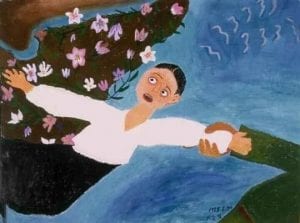Washington Coalition for Comfort Women Issues (WCCW) is holding its first international film festival at American University, D.C., this upcoming November. The organization, created in 1992, is committed on raising public awareness about the sexual enslavement of women by Japan during World War II and pressuring Japan to apologize to the victims.
“Japan has never apologized for this at official level,” said WCCW Vice President Jackie Kim. “They’re lobbying American textbook companies to delete passages about comfort women in the world history textbooks. They don’t want people to know about this.”
Comfort women are women who were abducted or forcibly recruited by Japanese military during the Second World War to be taken to the warfronts and made to please the Japanese soldiers in the evenings. This was a policy instituted by the Imperial Japan as an effort to prevent soldiers raping random civilians and contracting STD, becoming unable to fight. With the comfort women in place, tested for any such disease before being stationed there, soldiers would be able to rape more safely.
“After many failed attempts due to Japanese lobbying,” Kim said, “U.S. House of Representatives finally passed a resolution calling for Japan to admit its wrongdoing and apologize to the victims in 2007. We must keep fighting to get more progress.”
The historic event will be joined by, along with various award-winning films and their directors, Ms. Ok Sun Lee, one of the few living victims herself. The event is held from Friday, November 9, to Sunday, 11 November, at American University McKinley Building, D.C. The tickets cost 20 dollars on Friday and Sunday, and 30 on Saturday.



Japan has yet to apologize to the victims to its state-run sexual enslavement camps during WWII, and keeps claiming that the victims are exaggerating the story.
They were paid good money for working there, they say, and even if the victims are telling the truth, Japan now isn’t responsible for Japan then.
That would be more believable if they didn’t regularly hold ceremonies commemorating and worshipping the generals, soldiers, and government leaders of the Imperialist Japan, saying “They dedicated their lives to our great nation.”
The victims would have forgiven the Japanese a long time ago, had they apologized and compensated for the atrocities they had committed.
At the very least, they should teach Japanese students about this dark side of their history ,instead of justifying everything they did during the war.
But of course, that has not happened to date.